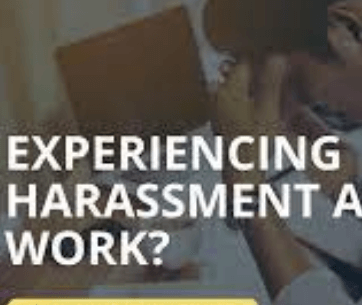study to become workplace harassment lawyer and their uses

Workplace harassment is a serious problem that needs to be addressed. It can have a devastating impact on employees, and as such, it’s important to know what rights you have and how to use them. In this blog post, we will share some tips on how to study to become a workplace harassment lawyer.
Workplace harassment is a problem that is only going to get worse
There is no doubt that workplace harassment is a problem that is only going to get worse. In fact, according to a recent study by the National Women’s Law Center (NWLC), one in five women have experienced sexual harassment at work, and nearly two-thirds of these incidents go unreported.
Workplace harassment can take many different forms, including verbal abuse, lewd comments, and unwanted touching. It can be particularly difficult to come forward about harassment because it can feel like you are risking your job or reputation. But speaking up is key to preventing and addressing workplace harassment.
If you are experiencing workplace harassment, there are several resources available to you. First, you can speak with your supervisor or human resources representative about the issue. Second, you can reach out to an organization like the NWLC or Legal Aid Bureau for assistance filing a complaint or seeking legal representation. Finally, you can join a network of women who have experienced similar discrimination in order to build solidarity and support.
There are many different types of harassment
There are many different types of harassment that can occur in the workplace. Some examples include:
-Quid pro quo harassment: This occurs when a person is harassed because they refuse to do something for their harasser, like giving them a promotion.
-Hostile environment harassment: This occurs when a person is harassed constantly, and it creates an intimidating, offensive or sexually hostile work environment.
-Revenge porn: This happens when someone takes naked or intimate photos or videos of someone without their consent and shares them online without their permission.
-Gender-based harassment: This includes any unwanted verbal comments about a person’s gender, sex, sexual orientation or physical appearance.
The best way to deal with workplace harassment lawyer
If you are experiencing workplace harassment, it’s important to know what your rights are under the law. There are a lot of different ways a lawyer can help you, and each situation is different. Here are some general tips for working with a lawyer:
1. Make sure you have an attorney who will work on your behalf aggressively and who understands your situation. There is no shame in seeking legal assistance if you feel that your rights have been violate at work.
2. Don’t be afraid to ask questions. Your lawyer should be willing to answer all of your questions about your case and the laws that relate to it. If they aren’t comfortable doing so, let them know and find another lawyer.
3. Be prepare to provide extensive information about the harassment you’re experiencing. Your lawyer needs to have as much information as possible in order to help you win your case. This includes details about the harasser, the incident, and any witnesses that may have been involve.
4. Don’t be afraid to demand compensation for damages that have been cause by workplace harassment. Not only does this make clear thatharassment is not acceptable behavior, but it can also lead to monetary compensation that can help cover expenses related to the harassment (such as lost wages or damage done to property).
How to become a workplace harassment lawyer
If you have experienced workplace harassment, there is a good chance that you are considering filing a lawsuit. Here are five things to keep in mind before making the jump:
1. Deal with the harasser directly. If possible, try to resolve the situation informally first. This will help prevent any further damage to your career and may even result in the harasser apologizing.
2. Know your rights. Before taking any legal action, it is important to understand your rights under law. Ask an attorney for advice on what steps you can take to protect yourself legally and move forward with your case appropriately.
3. Document everything! Keep all of your communication with the harasser, as well as any witnesses or recordings of the harassment, until you have had a chance to speak with an attorney about the situation
4. Save all evidence! If you decide to pursue a lawsuit, it is important to keep all of your evidence handy so that you can support your claims in court. This could include emails and other communications between you and the harasser, as well as any documentation related to the harassment itself (ie., screenshots or videos).
5. Be prepare for backlash from coworkers and management alike. Even if you win your case against the harasser, it is likely that they will be fire or lose their job altogether. Expect significant emotional stress during and after litigation proceedings, so make sure
Conclusion
If you’re interest in studying to become a workplace harassment lawyer, there are many different purposes for which you could use your skills. From defending employees who have been accuse of sexual harassment to helping companies create anti-harassment policies and procedures, becoming a workplace harassment lawyer has many benefits. While the field is complex and may require years of study, the rewards can be worth it. If you’re considering studying to become a workplace harassment lawyer, we want to help you make an informed decision by providing you with information on the types of courses available and how they can benefit you.




